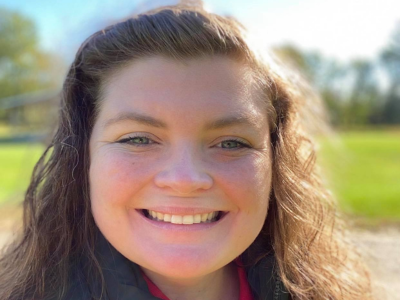Beyond 'I'm Sorry': Fostering Genuine Apologies at Summer Camp
We all know the power camp has. Kids can learn, grow, and make lasting memories. Camps provide an environment where kids can develop social skills, build self-confidence, and forge meaningful connections with their peers. There is SO MUCH power in camp.
A lesson I see happening at camps is teaching the value of apologizing. But just how are we doing that? We've all seen it—a quick, almost reflexive "sorry" nudged out of a camper after a disagreement. But is that really teaching them the value of an apology, or just how to go through the motions?
What if, instead, counselors took the time to guide campers through the emotional landscape of saying "I'm sorry"? Imagine a camp environment where apologies aren't just words, but meaningful actions backed by understanding.
Let's talk about the reasons why camp counselors and staff should adopt a more thoughtful and nuanced approach to teaching apologies.
Authenticity Over Compliance
When we force campers to apologize just to apologize, they may not truly understand the impact of their actions or feel genuine remorse. This not only undermines the value of apologizing but also teaches them that saying sorry is merely a social obligation rather than a sincere acknowledgment of wrongdoing.
Fostering Empathy
Genuine apologies are rooted in empathy. Camps should focus on nurturing empathy in campers, helping them understand how their actions affect others emotionally and mentally. Instead of forcing apologies, camp counselors can engage in open conversations with campers to help them grasp the consequences of their behavior. Encourage campers to put themselves in the other person's shoes, which can lead to more heartfelt apologies when they do come.
Learning Opportunities
Mistakes are an integral part of personal growth and development. By forcing campers to say sorry without giving them the chance to reflect on their actions, we deprive them of valuable learning experiences. Camps should create an environment where campers can make mistakes, learn from them, and understand the importance of taking responsibility for their actions voluntarily.
Promoting Communication
Camp is an ideal setting for children to develop effective communication skills. Instead of pushing campers to apologize immediately, encourage them to communicate their thoughts and feelings. This process can involve active listening, discussing the incident, and finding mutually agreeable solutions. Effective communication helps campers understand the underlying issues and resolve conflicts more constructively.
Forcing campers to apologize can erode trust between campers and counselors. Campers may begin to perceive apologies as a form of punishment rather than a way to rebuild trust and repair relationships. By allowing campers to apologize on their own terms, counselors demonstrate trust in their ability to make amends and grow emotionally.
Positive Reinforcement
Rather than forcing campers to apologize for their mistakes, camp counselors should focus on reinforcing positive behavior. Encourage campers to make amends through kind actions or gestures that demonstrate their willingness to change. Positive reinforcement can be more effective in promoting good behavior and personal growth than simply demanding apologies.
Conclusion
In a summer camp setting, teaching campers about the value of apologizing is essential for their personal and social development. However, it's equally important to avoid the practice of forcing campers to say sorry. Instead, camp counselors and staff should prioritize fostering authenticity, empathy, and personal growth while creating an environment where campers feel safe to communicate and learn from their mistakes. By adopting a more thoughtful and nuanced approach to teaching apologies, we can help campers develop into responsible and empathetic individuals who understand the true meaning of taking responsibility for their actions.
Looking for a framework that fosters genuine apologies and connections?
➡️ Check out restorative justice at camp curriculum or our other camper care resources.
 Megan Lynch
Megan Lynch
Leave a Comment